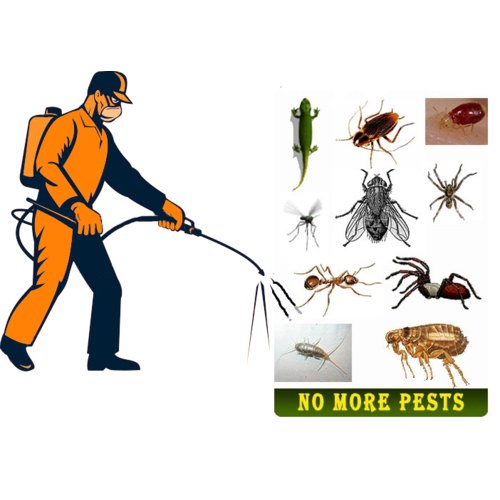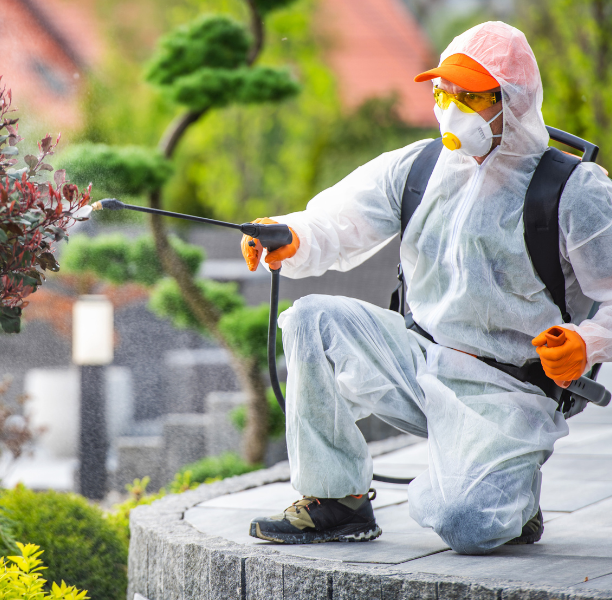Safe and Reputable Pest Control for Lasting Defense
The relevance of risk-free and dependable pest control can not be overemphasized, particularly in an era where ecological concerns are extremely important. Effective parasite management calls for a diverse approach that balances eco-friendly integrity with the demand for efficient parasite suppression. By checking out eco-friendly options and incorporated insect monitoring strategies, house owners can achieve long lasting defense against intrusive species while securing beneficial ecological communities. Nonetheless, the nuances of these approaches might not be right away clear, motivating a closer examination of the methods that can cause lasting pest control results. What steps can be taken to ensure both security and effectiveness in bug monitoring?
Understanding Pest Control Approaches
Bug control includes a range of methods targeted at handling and getting rid of undesirable pests and rats that can endanger both health and home. Understanding these techniques is critical for reliable insect management.
The key classifications of insect control techniques include mechanical, organic, and chemical methods. Mechanical methods involve physical barriers and catches to avoid pest access and capture unwanted species. As an example, utilizing screens on home windows or employing sticky catches can significantly reduce bug populations without presenting damaging substances.

Chemical parasite control is often the most acknowledged technique, making use of pesticides to remove insects. These chemicals can be reliable yet must be utilized with care to stay clear of adverse effects on non-target species and the atmosphere.
Advantages of Eco-Friendly Solutions
Just how can eco-friendly remedies change bug control practices? The fostering of green bug control methods provides various benefits, dramatically improving the effectiveness and safety and security of bug management.

One more benefit is the positive influence on local biodiversity. Environment-friendly remedies are made to target particular parasites while preserving helpful insects and wildlife, advertising a balanced environment. This approach aligns with the growing customer need for lasting practices, improving the online reputation of insect control providers.
Integrated Insect Administration Methods
The application of environmentally friendly solutions naturally results in the adoption of Integrated Bug Monitoring (IPM) approaches, which better enhance pest control efficacy. IPM is an alternative technique that integrates several strategies to handle pest populations while minimizing environmental impact. This strategy stresses the usage of organic, social, mechanical, and chemical controls, making certain a lasting and balanced technique of insect administration.
One essential aspect of IPM is the comprehensive assessment of pest activity and environmental conditions. By monitoring pest populaces and recognizing their life process, professionals can execute targeted interventions that disrupt the parasite's environment or lifecycle, minimizing reliance on chemical pesticides. Additionally, cultural methods such as plant rotation and environment adjustment can substantially decrease pest establishment and recreation.
An additional important element is the use of organic control agents, such as advantageous insects or microbes, which can naturally subdue bug populations. When chemical applications are required, IPM prioritizes using low-risk chemicals and uses them selectively, lessening direct exposure to non-target organisms and people.
Integrating IPM techniques not just improves insect control efficiency but also advertises a much safer environment, aligning with Click Here the expanding demand for lasting practices in bug administration.
Safe Practices for Home Owners
Comprehending the relevance of risk-free techniques in insect control can encourage homeowners to successfully manage insect concerns while protecting their health and wellness and the environment. Applying safe methods and safety nets is essential in decreasing exposure to damaging chemicals.
Home owners should initially assess their environment for conditions that attract pests, such as standing food, mess, and water waste. Consistently cleansing and securing access factors can deter parasites from invading the home. Utilizing natural deterrents, such as essential oils or diatomaceous earth, can provide reliable options to chemical pesticides.
When chemical treatments are required, property owners should go with items that are especially identified as safe for residential usage. It is vital to adhere to application guidelines carefully to avoid too much exposure. Making use of targeted therapies in locations where bugs are determined, rather than covering spraying, can dramatically reduce chemical usage.
Last but not least, maintaining open communication with parasite control experts is vital. Home owners should make inquiries regarding the safety of items used and request environmentally friendly alternatives whenever possible. By embracing these risk-free practices, home owners can produce a much healthier living environment while properly handling pest concerns.

Tips for Long-Term Security
Developing a pest administration strategy that highlights lasting protection can significantly improve the effectiveness of the risk-free techniques previously gone over. To attain this, homeowners must apply regular assessments of their property, concentrating on concealed locations such as attic rooms, cellars, and crawl areas. Early discovery of pest activity is important in protecting against infestations from taking hold.
Additionally, preserving a clean setting is essential. This consists of proper food storage, quickly cleaning up spills, and regularly taking care of garbage. These methods decrease attractants that draw insects into the home. Sealing entry points, such as fractures around doors and windows, can effectively obstruct possible bug gain access to.
Landscape design must also be considered; keeping plants cut and preserving a distance in between plants and the home lessens hiding places for bugs. Using natural deterrents, such as crucial oils or diatomaceous planet, useful site can even more inhibit invasions without resorting to severe chemicals.
Finally, teaming up with a professional parasite control solution for regular examinations can offer an added layer of safety. These experts can supply tailored referrals and advanced treatments, guaranteeing that your home continues to be secured against bugs in the long-term.
Final Thought
In conclusion, trusted and risk-free parasite control needs a complex approach that stresses environmentally friendly techniques and integrated bug monitoring. By executing all-natural deterrents, conducting routine assessments, and maintaining correct hygiene, property owners can dramatically reduce insect populaces while shielding advantageous bugs and the setting. Collaboration with professional insect control solutions boosts the performance of these strategies, making certain tailored services that supply long-term defense and satisfaction against future infestations.
Effective pest administration calls for a multifaceted approach that balances ecological integrity with the need for effective bug reductions. The fostering of eco-friendly pest control methods offers numerous advantages, dramatically improving the efficiency and security of insect management.The implementation of eco-friendly solutions normally leads to have a peek at these guys the fostering of Integrated Insect Management (IPM) approaches, which additionally improve insect control efficacy. exterminator coquitlam. By keeping track of parasite populations and determining their life cycles, professionals can carry out targeted treatments that disrupt the parasite's environment or lifecycle, minimizing dependence on chemical pesticides.In verdict, secure and trustworthy pest control calls for a diverse approach that stresses eco-friendly methods and incorporated insect management